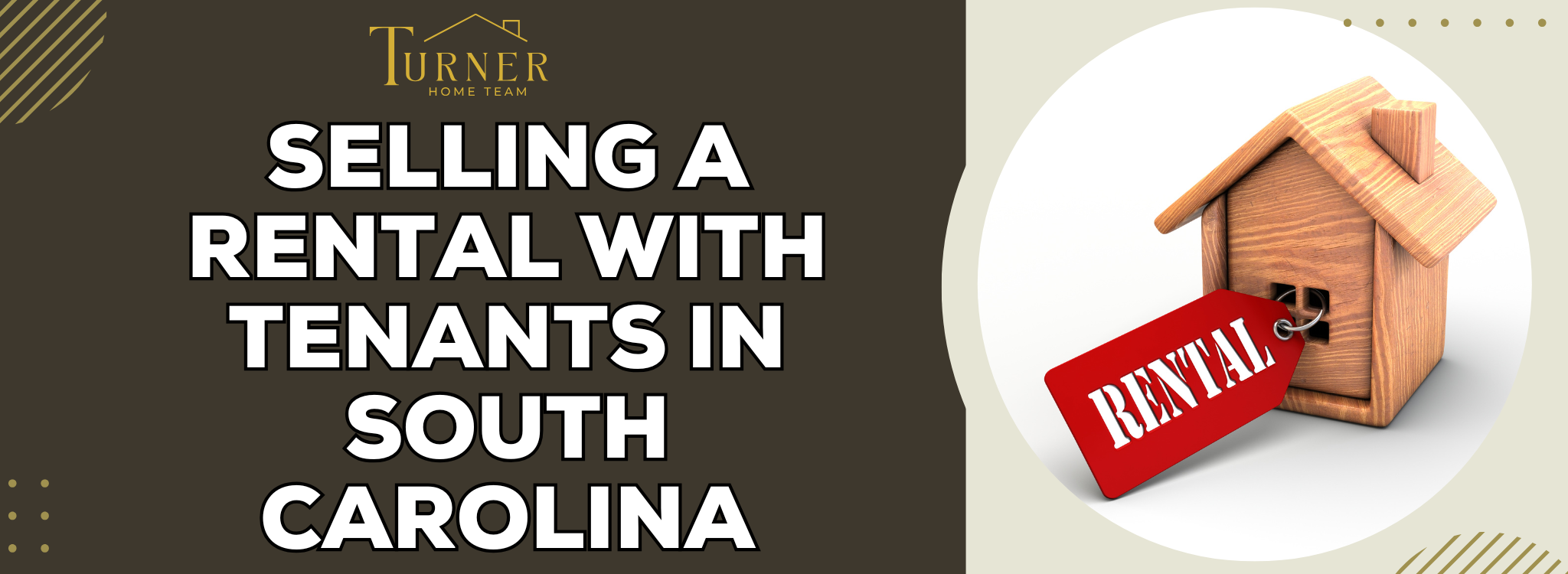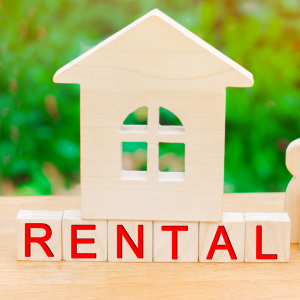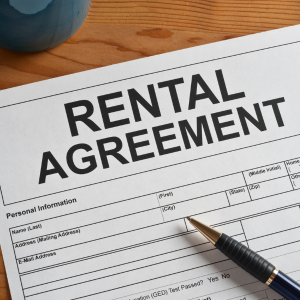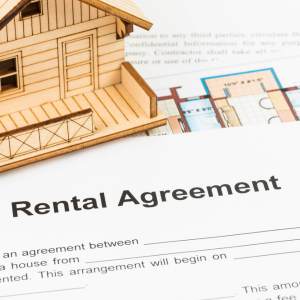
What Are the Legal Implications of Selling a Rental Property in South Carolina?
The laws in South Carolina don’t differ so much from those in other states. However, it’s applicable to South Carolina landlord laws to diminish issues arising from it. Selling real estate, including in South Carolina, is certainly a regulated process.
Basic Rights of a Tenant in South Carolina

Tenants are entitled to some rights when it comes to selling a home. There are laws in South Carolina concerning the removal of tenants and eviction. Communicating promptly and effectively with tenants is critical so that they’re able to make the necessary arrangements when the property is being sold. Tenants are entitled to rights outlined in the lease, which, in some instances, can complicate the sale. Knowing the rights of a tenant is essential to ensure that a property sale is legal and fair.
What are the Responsibilities of Landlords When Selling a Property
When selling a property, all landlords have obligations to fulfill. In South Carolina, after gaining a proper understanding of your rights, you must also comply with the South Carolina Residential Property Disclosure Act.
How to Handle Lease Agreements Legally
Dealing with lease agreements during a sale requires careful consideration. You must grasp the lease termination requirements for property transactions and the consequences of breaking a lease. Selling a house with an existing lease can be complex, but being clear and following the law helps avoid problems. Always obtain legal guidance to ensure you follow South Carolina laws correctly.
How Can You Maximize Property Value Before Selling?
When it comes to doubling profits, raising the selling price and the property’s appraisal are correlated. Marketing the property to potential renters is essential. Before sale, I enjoy having a property with all repairs and maintenance done and appreciate it when maintenance is up to date.
Making Necessary Repairs and Improvements

According to Charles Chan, CEO of Landlord Studio, “Repairs and maintenance before sale increase both appearance and value. Understand how tenants affect property valuation before deciding on essential renovations. Fixing structural faults and modest repairs can impact the final appraisal. Balance cost-effective repairs with those that enhance value to ensure a successful sale.
Staging A Property With Tenants
As with staging any tenant, there is a tenant staging problem. But, without creating tenant stress, a real estate tenant marketing plan can be used to show the property. For occupancy staging, there is light décor and decluttering. We use the designed units for tenants as a marketing strategy to improve marketability.
The Importance of Professional Appraisals in South Carolina.
Evaluating real estate through professional appraisals remains one of the most important means of determining value within the state of South Carolina. An understanding of the value South Carolina real estate markets provides allows one to strategically defining an advantageous selling price. An appraisal helps to appropriately devise a marketing plan for the property and sell real estate.
What Communication Strategies Work Best with Tenants?

When a rental property has tenants, the Owner-Tenant relationship becomes particularly vital. This is very important because it makes selling the property much easier and faster.
Tips for Effective Communication with Tenants
The need to communicate in simple, precise terms is important. Simplifying sentences and structures to facilitate quick comprehension on the tenant’s side is very important.
- Be Transparent: Tenants should know of the impending sale well in advance, and the entire process should be detailed to them, outlining the various stages they should expect and be prepared for.
- Understand Tenant Rights: This equips you with the knowledge needed to operate within the legal boundaries of your region. In the end, you will be able to answer the questions above with the confidence required.
- Outline Landlord Obligations: Describe your obligations to the landlord during the sale. This will instill a level of trust and improve the professional image you are trying to achieve.
- Encourage Feedback: Invite tenants to raise any concerns or questions that they may like the answer to. This helps to build a healthy professional rapport, especially when it is realized that the raised concerns have been addressed.
How to Maintain Tenant Cooperation During Sale
Having tenants’ cooperation during a sale is beneficial to all involved. Here’s how you can ensure that your tenants are cooperative:
- Inform Your Tenants About the Selling Process:Clearly explain to your tenants all that they need to know regarding the sale and anything that revolves around the sale, including viewings and inspections. Clarifying these steps is critical.
- Discuss Tenant Agreements: Clarify which agreements you have with the tenants. Your actions should follow the agreements and if they don’t, you could be held responsible for a breach of contract.
- Highlight Tenant’s Rights When Selling Property: This will ease the tension of your tenants, and it is critical for your compliance that you explain the tenant rights during the sale.
- Communicate Changes Promptly: During a property sale, any changes that will be taking place in the near future (e.g. new ownership, etc.) should be communicated to maintain a sense of transparency and demonstrate care.

Addressing Tenant Concerns Transparently
Dealing with tenant issues takes time and care. This is what you can do:
- Listen and Respond:Use effective communication and engage the audience and allow them to voice their concerns. Considering various points and having constructive debates is a way to calm them down.
- Legal Advice for Landlords: If the sale is likely to result in tenant rights infringements, legal steps should be taken to ease the process.
- Transparency in Communication During Sale: Communication about the sale should focus on building trust, as this is the goal at the beginning and throughout the selling period.
- Request Tenant Feedback: After the discussion, tell them we are ready for their feedback. Their perspective will help with further clarifications.
How Does the South Carolina Real Estate Market Affect Your Sale?
Selling a rental property in South Carolina requires consideration of the real estate market and its potential impact on the sale. Some aspects of the local market will determine sale prices and the duration a property remains on the market. When it comes to the real estate law in South Carolina, it is possible that the disclosures that you do and the way you carry out the transaction, may be subjected to some tenant rights and laws.

Rental Market Trends in South Carolina
Always keep an eye on the evolving rental market in South Carolina. When there is a surge in demand for rental homes, you will more likely be able to charge a higher price. Conversely, if the supply of rental market is robust, you may have to adjust your expectations downwards.
South Carolina Housing Market Analysis
Selling the business in a timely manner simplifies the analysis by determining an appropriate moment to sell and estimating the profit earned. This can be of great benefit, especially when more possible buyers have entered the market or the house prices have appreciated. An expert in the real estate market and its regional nuances can assist in a more accurate estimation. It does not matter whether the house is located in Charleston, Myrtle Beach, or anywhere in between, understanding local trends and buyer activity is key to making a smart, profitable decision
What Should You Do About Tenant Deposits?
Just as important is the proper handling of deposits in rental real estate. South Carolina landlord-tenant laws contains sections that require handling deposits in a manner prescribed by the State to assist both buyers and sellers.
Handling Tenant Deposits

When it comes to any sale, the first thing that comes to mind is the agreements regarding renter deposits. That is a yes or no question, but in both cases, renter deposits will have to be either moved to the owner or the new owner’s accounts at the closing.
Understanding Security Deposits and Property Management Laws
Property managers in South Carolina have rules regarding deposits, and deposits for transactions are one of those rules. They are recorded and documented electronically in a timely and proper manner, and available, and readily accessible communication with tenants regarding the deposits can alleviate concerns and problems.
Resolving Deposit Issues
In order to eliminate any additional issues that may arise from unresolved tenant deposits, actions that need to be taken should be attended to without any further delay. Documentation of issues and clear communication help you protect your tenant relationship and prove that you have fulfilled your legal obligations.
What Are the Financial Implications of Selling Your Rental Property?
Every sale of an investment property comes with some legal and financial obligations that need to be addressed first. Understanding these will help you in completing the sale.
One of the major issues that arises is the capital gains tax on the rental sale. This tax is applied against the base and the selling price, deducting some basic trickles, such as the upgrades done. If the property is owned for more than one year, the owner is entitled to pay the lower long-term capital gains tax.
It’s important to consider taxes when selling rental property. This includes declaring any rental revenue up to the date you sell the property on your tax return. To comply with rental income reporting requirements, keep complete records of all property-related income and costs. If you want help navigating taxes, capital gains, and how to reinvest your earnings, this investment planning resource from CCU is a good place to start.
When selling in South Carolina, it’s important to consider property taxes. These could include local taxes resulting from the property sale or changes in personal property taxes if the property’s use was designated differently, such as farming.
There are bigger financial repercussions. Consider how the sale earnings will fit into your long-term financial plans, such as retirement or investing. A financial advisor can provide guidance that is targeted to your specific situation.
How Can a Real Estate Professional Help with Selling Tenant-Occupied Properties?

Hiring a real estate professional can make selling a tenant-occupied property easier. Here’s what they can do for you:
Selling Rental Property Strategy: An experienced buyer knows how to market a property with tenants. They can create a plan that respects tenant rights while showing the property to buyers.
Marketing Tenant-Occupied Property: Good marketing is key. Experts make listings that show off the property’s best features and schedule viewings around tenant availability to minimize disruption and increase buyer interest.
Coordination with a Real Estate Professional: Your expert is a middleman between you and buyers, handling questions and negotiations professionally. They ensure communications follow tenant-friendly real estate practices, which is crucial when managing properties with tenants.
Another advantage is an expert’s knowledge of South Carolina real estate laws. They stay updated with local rules, helping to avoid legal problems during the sale and ensuring compliance with state and federal landlord-tenant laws.
What Are Some Alternative Selling Strategies?
When selling a rental property, choosing the right strategy is key. Here are some alternative methods to consider:
- Selling the Property: You can sell your property without making any big repairs or upgrades. This is a good choice if you want a quick sale and are looking for buyers ready to handle renovations themselves.
- Selling to an Investor: Investors often look to buy rental properties because they see potential returns. They are usually experienced in managing tenants, which can make the process smoother.
- Sell a Rental with Tenants in Place: Keeping tenants during the sale can appeal to buyers who want immediate rental income. It’s important to communicate with tenants and ensure they know their rights.
- Cash for Keys Agreement: Offering cash to tenants to leave early can benefit both parties. This approach helps ensure the property is empty before listing, which can simplify the selling process.
- Lease Buyout Options: If tenants want to leave early, they can negotiate a lease buyout. This involves understanding the obligations of both parties and reaching a deal that works for everyone.
How Can You Ensure a Smooth Transition for Tenants After Sale?
Making sure tenants experience a smooth transition after the sale is important for maintaining good relationships and meeting legal obligations.
- Understand Tenant Relocation Needs: Talk to tenants about their plans and how the sale affects them. Offer help or resources for relocation if needed.
- Respect Tenant’s Rights When Selling Property: Tenants have rights during a sale, such as getting proper notice of the sale or ownership changes. Respecting these rights is legal and helps make the process run smoothly.
- Managing the Transition: Ensure leases are transferred correctly to the new owner. Also, ensure lease details and tenant information are accurate and shared with the buyer.
- Fulfill Landlord Obligations: Before completing the sale, take care of all obligations, such as returning security deposits or fixing maintenance issues. Give tenants enough notice to make necessary arrangements.
- Communication and Notice Period for Tenants: Open and honest communication is crucial. Inform tenants well in advance about any changes and keep them updated to manage expectations and reduce stress.
By using these strategies and focusing on tenant welfare throughout the selling process, landlords can achieve a successful property sale while maintaining a positive relationship with tenants. For more information or to discuss your property needs, contact our team at Turner Home Team.
If you’re looking to sell a house in South Carolina, this guide is packed with valuable insights to help you navigate the process smoothly. Whether you’re in Florence, Myrtle Beach, Conway, Socastee, or any nearby area, the tips and strategies shared here are designed to make your experience easier. At Turner Home Team, we specialize in helping homeowners sell quickly and hassle-free. If you need personalized assistance or have specific questions, don’t hesitate to Contact Us at (252) 525-4780. We’re here to help every step of the way!
Get Your Commercial Offer Now!
START HERE: We buy properties in ANY CONDITION.


